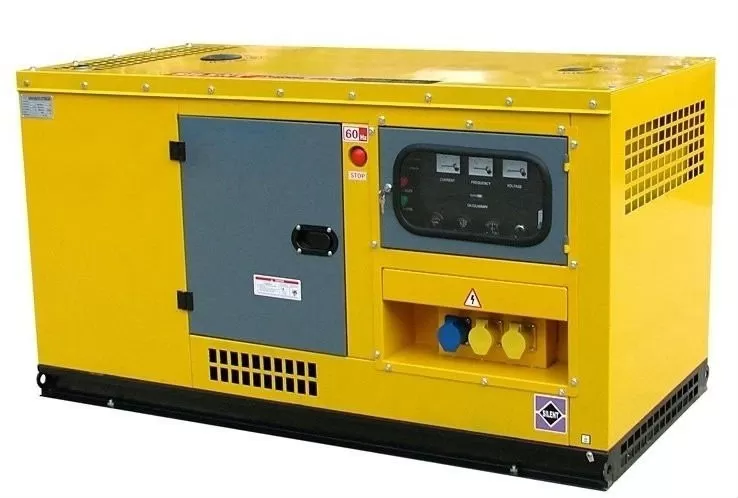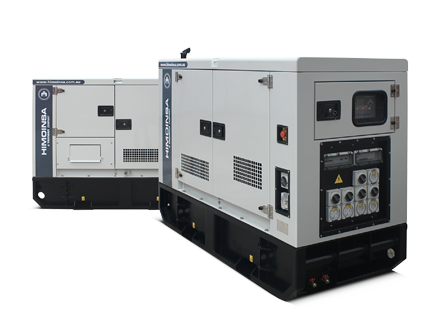Are you looking to purchase a generator for your home or business in Brisbane? With so many options on the market, it can take time to determine which one is right for you. That’s why it’s important to consider the seven key factors for buying generators Brisbane: power output, portability, fuel type, noise level, maintenance needs, safety features, and price. We’ll discuss each of these considerations in more detail so that you can make an informed decision and get the most out of your investment.
Assess your power needs
Before you begin shopping for generators in Brisbane, you need to determine how much power you need. Consider the essential appliances and electronics you want to keep running during a power outage. Do you need to power your whole home or just a few select items? This will determine the size and wattage of the generator you require. It’s also a good idea to consider any potential power needs in the future. Don’t forget to account for heating and cooling systems, as they use a lot of electricity. Take a moment to assess your power needs and write them down, so you can reference them when looking at generators. This will help ensure you purchase a generator that meets your needs now and in the future.
Determine the fuel source
One of the most important factors to consider when buying a generator is the type of fuel it runs on. This can have a significant impact on both the efficiency and cost of operating the generator. The three most common types of fuel used for generators are gasoline, propane, and diesel.
Gasoline generators are the most common type and are widely available. They are also typically the most affordable option and can be used for a variety of purposes. However, gasoline is also the most volatile of the three fuel options, and the fuel can spoil quickly if not used regularly.
Propane generators are becoming increasingly popular due to their lower emissions and lower fuel costs compared to gasoline. Propane also has a longer shelf life than gasoline and is readily available in most areas.
Diesel generators are known for their reliability and durability. They are typically more expensive than gasoline or propane generators but can provide power for longer periods of time. Diesel fuel also has a longer shelf life than gasoline, making it a good option for emergency situations.
Ultimately, the choice of fuel source will depend on your specific needs and preferences. Consider the availability and cost of fuel in your area, as well as any environmental concerns you may have. By carefully considering the fuel source, you can ensure that your generator meets your power needs while also being efficient and cost-effective.
Consider portability
When buying a generator in Brisbane, it’s important to consider portability. If you plan to use your generator in different locations or during emergencies, you want a unit that is easy to move and transport. Portable generators are the best option if you need flexibility and convenience. They are compact and lightweight, making them easy to move around your property or take with you on the go.
Consider the weight of the generator, the type of wheels or handles, and how easy it is to load and unload it from your vehicle. Check the dimensions to ensure it will fit in your car trunk or the space where you plan to store it.
Another factor to consider when it comes to portability is the fuel source. Gasoline-powered generators are common and widely available, but they require gasoline storage and can be messy to refuel. Propane and diesel generators are more expensive but are often more efficient and cleaner. Decide which fuel type is most convenient for you, and consider purchasing a generator with a large fuel tank so that you don’t have to refill it frequently.
Lastly, look for a generator with a protective cover or case to keep it safe from the elements during transportation. A well-designed portable generator should be easy to store and move without compromising on performance. By considering portability, you’ll be able to use your generator whenever and wherever you need it.
Think about noise levels
Generators are notorious for being noisy machines, and if you plan to use yours in a residential area or around people, you may want to consider the noise level of your generator. Some generators emit a loud hum, while others operate almost silently. Noise can be measured in decibels, and you should aim for a generator with a decibel level of around 65 dB or less.
While noise may not seem like a big deal, it can be a significant factor when purchasing a generator. Loud generators can be a disturbance to your neighbours, and some neighbourhoods have specific noise ordinances that restrict the operation of loud equipment during certain hours. Additionally, excessive noise can lead to hearing damage and can be dangerous if you work around machinery regularly.
Inverter generators are known for their low noise levels. These generators produce a clean and stable electrical current, which reduces the amount of engine noise. Inverter generators are ideal for those who plan to use their generator in residential areas or near others.
If noise levels are a concern, you should also look for a generator that has noise-dampening technology, which can help to reduce engine noise. Some generators have mufflers, soundproofing materials, and insulated housings to minimize the noise they produce.
Check for safety features
Safety should always be a top priority when it comes to purchasing any type of equipment, including generators. When selecting a generator, be sure to look for models that come equipped with safety features to protect yourself and others around you.
One key safety feature to look for is an automatic shut-off switch. This will shut the generator off if it senses any dangerous changes in the operating conditions, such as low oil pressure or overheating. This feature is especially important in emergency situations where the generator is being used for extended periods of time.
Another important safety consideration is grounding. The generator should be grounded to prevent the risk of electric shock or electrocution. Some models come with built-in grounding rods, while others may require additional equipment to properly ground the unit.
Evaluate maintenance requirements
Purchasing a generator isn’t just a one-time investment; you need to consider its ongoing maintenance requirements to ensure that it runs smoothly and efficiently. Here are some things to consider:
First, check the maintenance schedule provided by the manufacturer and determine the frequency of maintenance needed. This schedule should cover basic maintenance, such as oil changes, air filter replacements, and spark plug replacements.
Second, consider the accessibility of the generator’s components. Can you easily access the oil filter or spark plugs for replacement or cleaning? Make sure the design allows for easy access, or you may face difficulties maintaining the generator.
Third, look into the availability of spare parts and how easy it is to find them. Ensure that replacement parts are readily available, or it may take weeks to get the generator back up and running if there is an issue.
Fourth, consider the manufacturer’s customer service and support. Do they have a knowledgeable and responsive support team to help you troubleshoot and repair any issues that may arise?
Look for warranties and customer support
Before making your final decision on a generator, be sure to check for any available warranties and customer support. These are essential considerations as they can provide peace of mind in case any issues arise.
Warranties vary between different generator models and manufacturers, but generally, they should cover any defects in materials or workmanship for a specified period. Some warranties also include free repairs or replacements in case of damage during normal usage.
Customer support is also critical when it comes to buying a generator. You want to ensure that the company you’re buying from has an established customer support system, including online and phone support, user manuals, and technical support.
Additionally, you should consider if the company offers repair or maintenance services and the availability of replacement parts.
Conclusion
When it comes to purchasing generators Brisbane, it’s essential to take the time to evaluate your power needs, fuel source, portability, noise levels, safety features, maintenance requirements, and warranties and customer support. By considering these important factors, you can ensure that you make an informed decision that will meet your power needs and provide you with reliable backup power when you need it the most. Don’t rush into a generator purchase without doing your research. Take the time to assess your needs and find the perfect generator that fits your specific requirements. With the right generator, you’ll never be left in the dark during power outages again.



